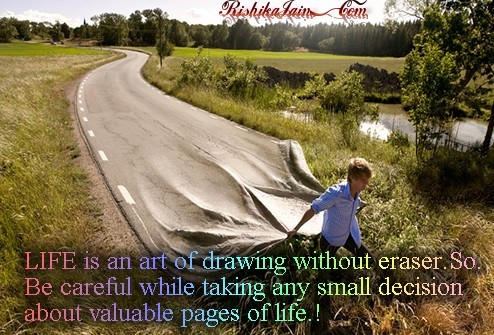Make the best decision you can
People can spend months debating the `best` decision without actually deciding anything. Here are some pointers to good decision making. Turns out it`s often a teams and timing thing.
Like good comedy, the key to good decision making is (pause) timing. Give yourself time to think, but don`t procrastinate.
Before we get going, let`s knock on the head the notion that `being decisive` and `making good decisions` are necessarily the same thing.
Let`s remember that Margaret Thatcher was the model of a decisive PM, and that President Bush is regarded as a firm decision maker. Yet both have made some whopping errors of judgment- for example, introducing poll tax in Thatcher`s case , and as for Bush, well there are just too many poorly thought through debacles to choose from(allegedly).
So it`s clear that being overly decisive can often as not turn out badly. Of course, the same can be true of those people who are the opposite- underly decisive, as it were. Unnecessary procrastination often leads to results every bit as bad as those gained by the obsessively decisive. Think of all the appeasers in history who were just that bit too inclined to do nothing, arguing instead the merits of giving the benefit of the doubt to a rank wrong `un. When you have to make a choice and you back off from making it, that itself is a choice (ah, those years spent in philosophy class weren`t entirely wasted).
Decision making can be defined as the ability to decide on a course of action after due reflection. Good decision makers seem to have three key abilities, namely to:
- Gather the appropriate evidence (and, equally, to ignore the irrelevant or immaterial evidence)
- Weigh up the evidence correctly
- Make the decision at just the right time, i.e. neither too early nor too late.
Sometimes decision making is a solo pastime – perhaps nobody else is around, or maybe it`s just inappropriate to involve others because the decision isn`t that complex or important, or possibly you are the only person with all the necessary information to be able to make that decision.
On other occasions, we can reach a better quality decision by involving others. People can consistently deploy their pooled wisdom to outstrip individuals – no matter how brilliant the individual – at solving problems, fostering innovation and coming to wise decisions.
When it comes to making the decision at the right time, there is obviously no `one-size-fits-all` point at which this optimal moment presents itself. Every decision has to be assessed in its own context. Generally speaking, you`ll find it`s more important to make the right decision than the `best` decision. Every decision involves a level of risk, and some decisions are more critical than others to get absolutely right.
.jpg)




 CAclubindia
CAclubindia
